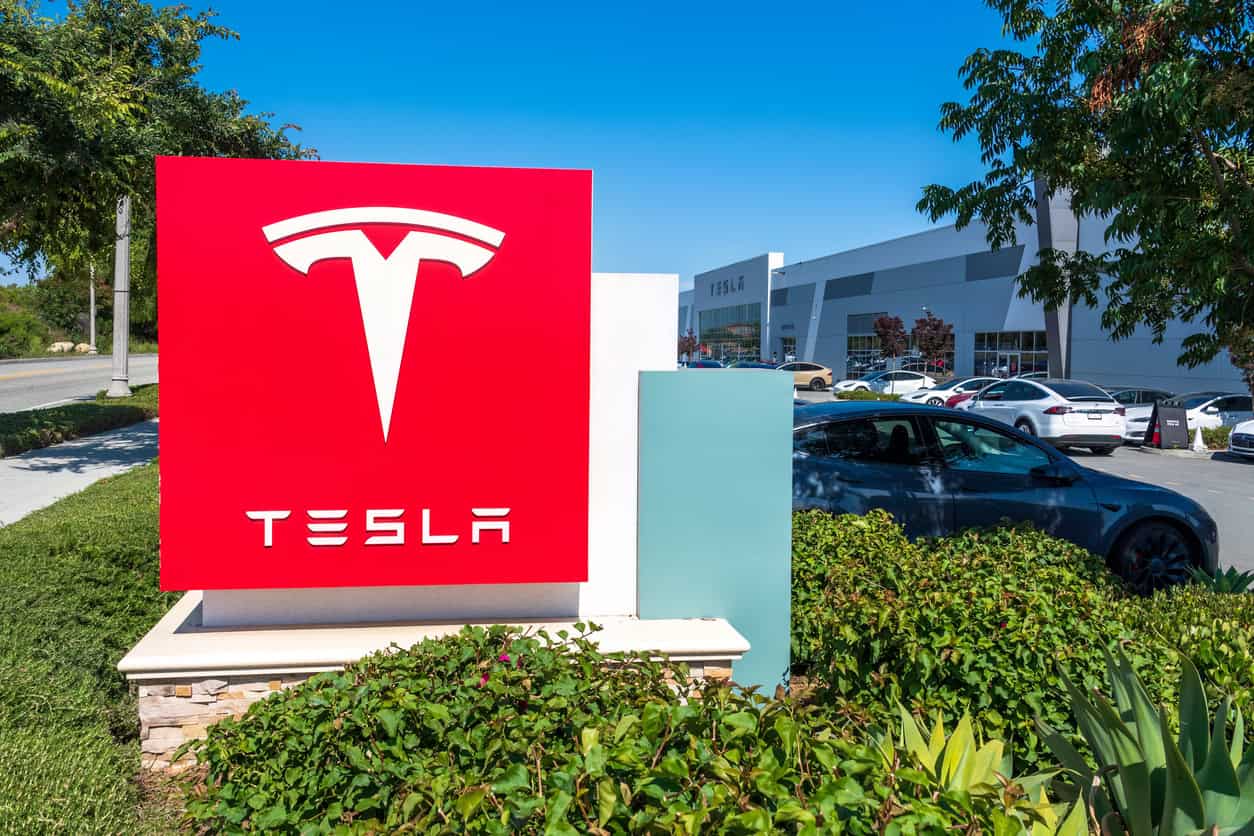
iStock.com/baileystock
Tesla Cars Make Debut on Chinese Government’s Approved Procurement List
July 5, 2024
According to the Chinese state-owned media outlet The Paper, Tesla vehicles have now been added to the local Chinese government’s purchase list for the first time.
Government agencies and public organizations in the province can now acquire Tesla vehicles for their fleets with this integration. This move emphasizes the strong partnership between China and Elon Musk’s electric vehicle company, per CNN.
In the latest government purchase catalog released by Jiangsu province in eastern China, Tesla stands out as the sole foreign-owned electric vehicle brand listed. The catalog also features domestic brands like Volvo, under China’s Geely ownership, and state-owned SAIC, as well as others.
The news has sparked viral discussion on Chinese social media platforms, with certain users debating whether foreign-made vehicles should be authorized for government use.
A report released on Thursday by the state-owned National Business Daily, which references a government employee as a source, indicates that the Jiangsu government has tried to alleviate any worries by saying that the Tesla model is “a domestic car, not imported.”
In 2023, with its large gigafactory in Shanghai, Tesla produced around 947,000 cars in China. The majority of these cars were sold within the country.
Tesla has significantly expanded its footprint in China, where the country now represents over half of global electric vehicle EV sales. Over the last year, Tesla earned almost 25% of its total revenue from China.
Despite challenges, American EV manufacturers are contending with increased competition from Chinese automakers. BYD took the lead in global EV sales in the final quarter of 2023, overtaking Tesla. While Tesla regained its position in the first half of this year, the competition remains fierce with both companies closely competing.
In the past, Tesla vehicles faced restrictions from accessing certain government and military installations in China over concerns related to espionage and data security.
In April, the restrictions were lifted, coinciding with an announcement from a prominent automotive association confirming that Tesla vehicles had met China’s stringent data security standards. This development occurred on the day Elon Musk visited Beijing and held discussions with Premier Li Qiang, who commended Tesla as a “successful model” for a U.S.-China partnership.
However, tensions between China and the West are escalating in various ways.
On Thursday, the European Commission announced plans to impose added tariffs starting Friday, with rates reaching up to 37.6% on electric vehicle imports from China.
In response to concerns over unfair government support and to prevent an influx of inexpensive Chinese vehicles, the EU initially announced tariffs in early June. These measures, which include an average additional tariff of 20.8% for Tesla and other cooperating companies, aim to regulate imports of Chinese electric vehicles into Europe. Tesla has separately requested a specific tariff calculation from the European Commission, given its significant export volume of EVs manufactured in China.
Recent News
Delta Seeks Outage Damages From Microsoft, CrowdStrike
The airline plans to sue both Microsoft and CrowdStrike for damages.
Sprouts Shares Positive Q2 Financial Results
Sprouts Farmers Market, Inc. reported robust second-quarter results ending on June 30, 2024.
Johnnie Walker Maker, Diageo, Posts Largest Sales Drop Since the Pandemic
As inflation and high interest rates force many to find ways to cut spending, it appears alcohol is also losing its buzz.
IKEA Focuses on Sleepeasy With New Pop-Up Event
IKEA U.S. is making new strides in the furniture retail market by launching The IKEA Sleepeasy, an immersive pop-up event that will take place in New York in August.
